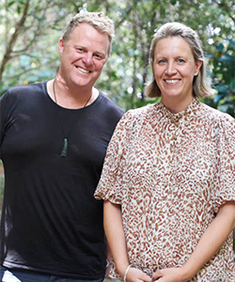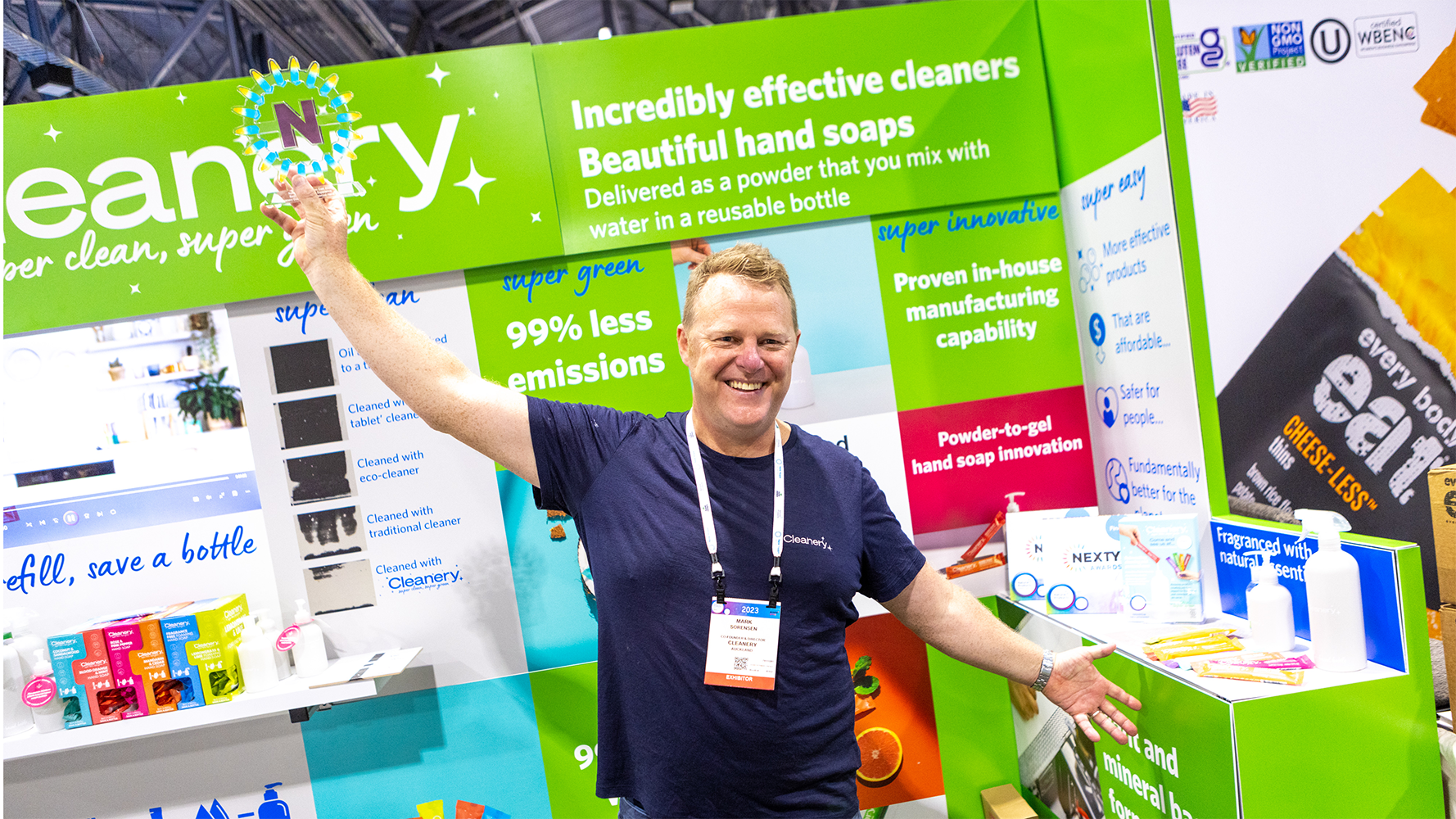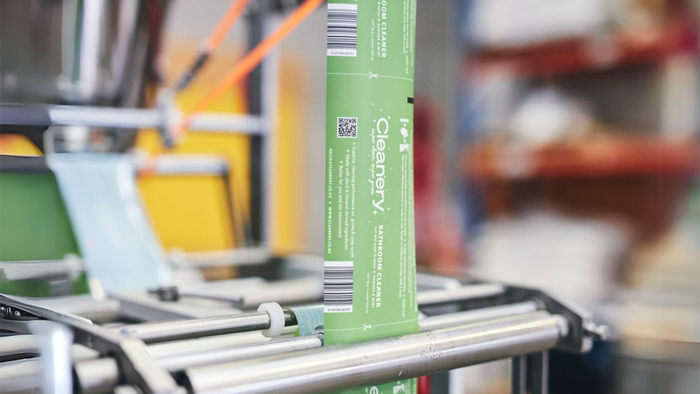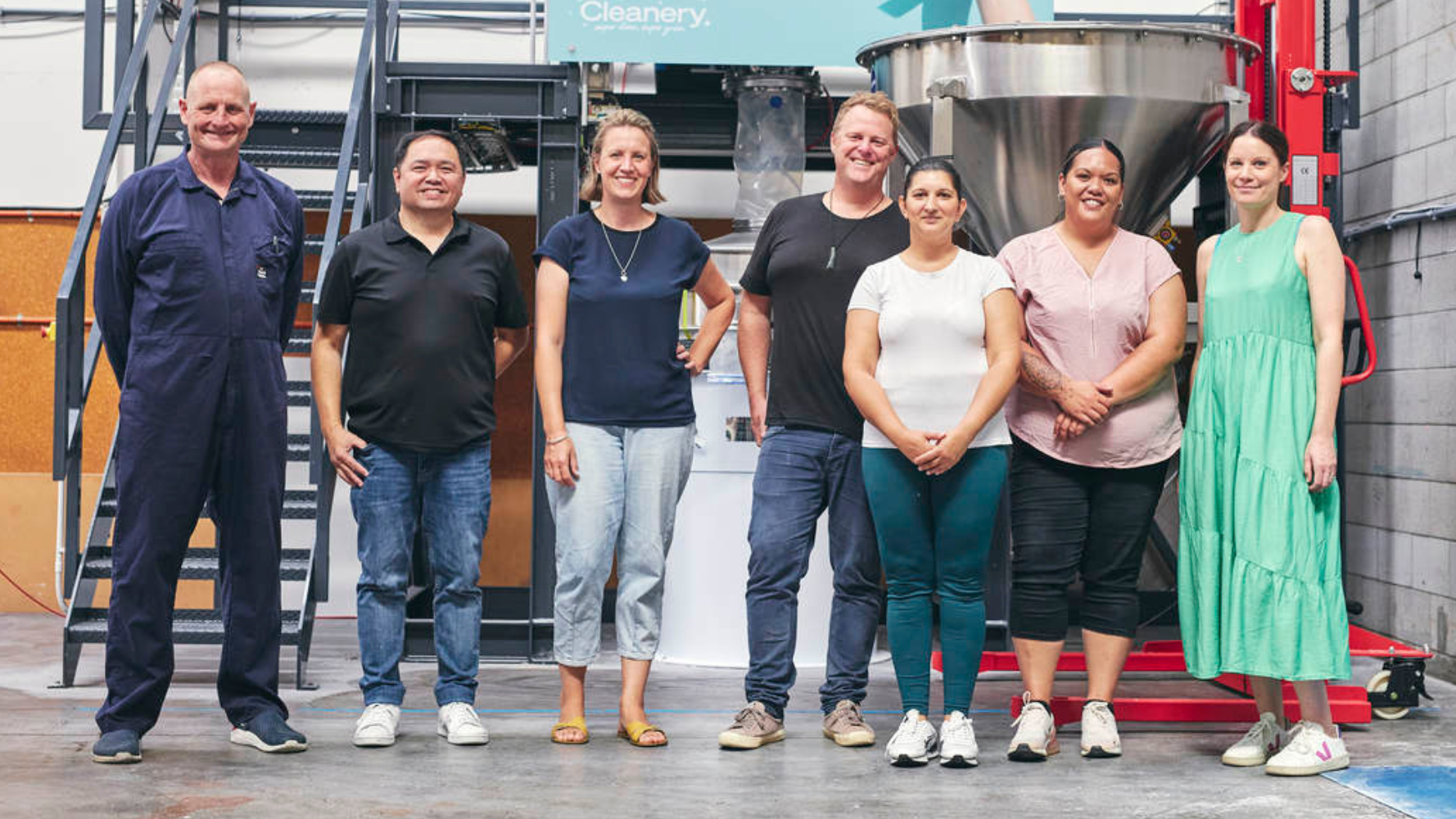How Cleanery won the inaugural NEXTY Award for 'Innovation Experience'
This New Zealand company is reducing packaging with waterless cleaning and personal care products. Discover how Cleanery got its start.
November 28, 2023

It started as a high school essay.
Mark Sorensen—the co-founder of Cleanery, a New Zealand-based cleaning and personal care business that uses low-waste, eco-friendly packaging—wrote about how consumable goods were wrapped in unnecessary amounts of packaging that was bad for the planet.
He was 14 years old.
"My father always talked about how there was so much waste in packaging," Sorensen says. "We were never allowed products with excessive packaging at home."

Mark Sorensen and Ellie Brade, co-founders of Cleanery
More than 25 years later, Sorensen started Cleanery and its parent company, The Sustainable Care Company, a certified B Corporation he co-founded with his wife, Ellie Brade, in 2020.
Just changing packaging isn't enough, Sorensen says. More needs to be done to conserve water and other resources. By 2050, there will be more plastic than fish in the sea, according to the Plastic Soup Foundation. Much of that is caused by single-use plastics. Sorensen says that cleaning and personal-care products are a huge part of the problem.
"It's a slow-moving industry that's just focused on cost saving as the world is filling up with these plastic bottles," he says. "There's an opportunity to do something at scale. That's why we started this business."
With the idea that more plastic means more problems, Cleanery's product line includes an innovative powder-to-gel formula for its cleaners, hand wash and soaps, such as its Coconut and Sandalwood Hand Soap which won the inaugural NEXTY Award for Innovation Experience. Each product is packaged in a 1 gram, recyclable soft plastic sachet that uses 99% less single-use plastic than a traditional bottle of cleaning product.

Matt Sorenson celebrates winning the inaugural NEXTY Award for Innovation at Natural Products Expo East 2023.
Here are Sorensen's insights into why self-manufacturing is better for growing a business, the importance of reducing waste, and the thrill of winning a NEXTY.
How did you go from writing a high school essay to starting your own company?
Mark Sorensen: My family was entrepreneurial. That was my upbringing. I wound up working jobs in a consulting or self-employed role longer than I anticipated as I looked for a business to start.
When you're going to start a business, it has to be something that you're going to put your heart and soul into for five to 10 years or longer. It has to be something you're really going to be patient about. I couldn't imagine myself working on any other problem.
Why did you focus on cleaning and personal care?
MS: It's a massive industry that everyone uses. Billions of people use cleaning products and hand soaps. It's an industry that's based on shipping water and single-use bottles.
How did you get the formula right?
MS: Ellie is probably more of an environmentalist than me. She was always making up household cleaning products at home with DIY recipes. And they were never really all that successful, and I never enjoyed using them.
I've got a background in science and engineering. We spent a couple of years and a heap of money developing the science and the manufacturing facility that was needed to make the whole thing work. It's one of those things that wound up snowballing.
How did you start?
MS: We started working on it right as COVID began in 2020. It was at least 18 months of technology development. Fairly quickly, we worked out that it was going to be possible to make the product that really works, a powder that you dissolve in water. But then how do you go manufacture that at scale? The manufacturing at scale challenge was hard for us. There was no one that could do it.
What did you do?
MS: We had to go and find the money and the right people to go over the manufacturing parts and prove at different levels it could scale.
It wasn't possible to find someone to co-manufacture. And that wound up being a real blessing in disguise because building a factory has enabled us to really understand the product and take products to market really quickly. And with the right unit economics, so we can sell to supermarkets.
You need to cost-effectively be able to get them to market at the right price. These are the things we didn't really know.
How did you come up with this patented formula?
MS: We had to reimagine the entire format of the product—the science, the business model and everything that goes behind it.
That's enabled us to be transformative, rather than just incremental.
It's not just the packaging that we're focused on. It's also the format of the product, removing the water and eliminating the packaging as much as possible.
Why is this important for the planet?
MS: Over the past 20 years, we've gotten so much better at making packaging and cheap, plastic goods and things that we don't really need.
As people, we have to get better, especially if we want to avoid this climate catastrophe and the climate changes, we find ourselves in. We can't just be incremental and make incremental changes. We need big changes and radical innovation.

How has self-manufacturing helped?
MS: Owning our own manufacturing has enabled us to innovate quickly, but also to make things at the right speed.
What's your manufacturing facility like?
MS: It's a tiny little factory. But the cool thing is we designed it so that it can be replicated in the market. As we build up demand, we're going to replicate the factory we've got here in New Zealand in the U.S., so it is first to customers and has a locally-made value proposition.
What advice do you have for other entrepreneurs?
MS: To truly innovate and develop groundbreaking products, you have to really understand that product and the tech behind it.
A lot of people have truly amazing brands, but they don't really understand how their products are made, or what the technology or science is that's behind it, because they rely on co-manufacturers. I think you miss out on a lot of opportunities for true innovation when you do that.

Cleanery co-founders Ellie Brade, third from the left, Matt Sorenson, fourth from the left, and other members of the Cleanery team pose for a photo outside of the New Zealand factory.
How are you scaling the business?
MS: We've been selling products in New Zealand through supermarkets and the mass market for about 12 to 18 months. In that time, we've gone from zero to 2,000 supermarkets in Australia and New Zealand.
Which supermarkets are you selling in?
MS: We are selling in New World, Woolworths and Coles Supermarket.
What's your expansion plan in the U.S.?
MS: We just launched on Amazon.
What was it like to win the first-ever NEXTY Award for Innovation Experience?
MS: It's a genuine award where the product is actually judged on its merits: Is this a good product or not? We were super excited to have won.
About the Author(s)
You May Also Like




